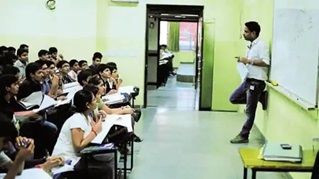From setting a lower age limit of 16 for students who enrol in coaching institutes to mandating that such centres have adequate infrastructure, meet fire safety standards and have trained counsellors to look after the students’ mental health — the education ministry’s new guidelines attempt to address a host of concerns about the largely unregulated coaching industry.
Issued on 16 January, the guidelines — which also deal with issues such as fee structure and tutors’ qualifications — apply only to offline coaching centres. Such institutes will face penalties and revocation of their registrations if they don’t comply.
The guidelines are expected to have a significant impact on the coaching industry, which is worth over Rs 58,000 crore, as well as on the students, parents, and tutors involved in it. According to officials, this framework will help control the unchecked expansion of private coaching centres.
“The issues related to the private coaching centres, more so in the context of rising student suicide cases, fire incidents, lack of facilities as well as methodologies of teaching have been engaging the attention of the government from time to time,” read the government advisory.
The new guidelines also say that if a coaching centre has more than one branch, each branch must be registered independently: “In case of a coaching centre having multiple branches, each of such branches shall be treated as a separate coaching centre and it shall be necessary to submit a separate application for registration of each branch.”








